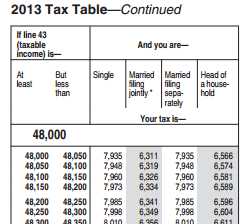Wealth, at its core, is a measure of one’s net assets: the cash and equivalents you control, plus the market value of your physical and intangible property. What many people fail to realize is that these assets are accumulated over time using after-tax income. That makes taxation—especially income taxation—a crucial factor in whether or not someone can even begin building wealth.
Here’s where it gets complicated.
In the United States, we operate on a graduated income tax system. This means the more you earn, the higher the percentage of your income that is taxed. On the surface, this seems fair—it appears to ask more from those who earn more. But dig a little deeper, and you’ll start to see that the effects of this policy might be the opposite of what’s intended.
The stated goal of a graduated tax system is to redistribute income from the wealthy to the less wealthy, theoretically narrowing the wealth gap. However, in practice, it may actually entrench wealth inequality by penalizing those in the early stages of wealth-building.
The Wealth-Building Paradox
Let’s say you’re working hard, saving diligently, and trying to get ahead. All your income—your wages, any interest from a savings account, and even your short-term capital gains—is taxed at increasing rates as your income rises. This means that the very dollars you need to save and invest in wealth-building assets are continually siphoned off.
Related Podcast: The Ripple Effect: Raising Taxes on the Rich and Small Businesses
Contrast that with someone who is already wealthy.
The wealthy rarely depend on “earned income.” Instead, they derive much of their income from investments—dividends, long-term capital gains, and real estate—which are often taxed at fixed, lower rates, or even deferred entirely in retirement accounts or tax-sheltered vehicles like trusts and real estate exchanges. According to IRS data, top earners typically pay a smaller effective tax rate on their total income than high-income wage earners due to these preferential tax treatments.
Related Post: Why Smart Entrepreneurs Pay Less in Taxes Than Employees—Legally
So while the average middle-class family sees a large chunk of their paycheck go toward federal income tax, the wealthy are free to reinvest their tax-advantaged capital, generating more income and compounding their assets with minimal tax friction.
Taxation: The Barrier to Upward Mobility?
Here’s the kicker: a person who’s trying to move up the socioeconomic ladder is hit the hardest. Their income is taxed at high rates before they even have a chance to save or invest. And once they do manage to invest, they often do so in small amounts that are either taxed immediately or don’t qualify for the same tax breaks as those available to institutional or high-net-worth investors.
Meanwhile, the already-wealthy can invest in assets like:
- Stocks held for more than a year (long-term capital gains, taxed at 0%, 15%, or 20%)
- Tax-deferred retirement accounts
- Real estate with depreciation and 1031 exchanges
- Private equity or venture capital opportunities that are often inaccessible to average investors
These vehicles allow wealth to grow, often untouched by the progressive tax system.
Does the System Create a Self-Perpetuating Elite?
If you’re among the working class or even the upper middle class, your main path to wealth accumulation is often blocked—or at least hindered—by tax policy. Ironically, the very system designed to reduce inequality may be doing the opposite.
While the rhetoric surrounding progressive taxation centers on “fairness” and “redistribution,” in reality, it does little to redistribute wealth. It merely redistributes income, and mostly from those who are still trying to become wealthy, not those who already are.
This structural imbalance raises a critical question: “Is the graduated income tax really just a tool that increases the wealth divide by holding down those still trying to climb the ladder?”
So, What Should Change?
Some suggest flattening the income tax while taxing all investment income equally, eliminating preferential treatment. Others argue for eliminating income tax entirely in favor of consumption-based taxes, which tax spending rather than earning.
No solution is perfect. But if the goal is truly to empower upward mobility and shrink the wealth gap, it may be time to reconsider whether our current approach to taxation is helping—or hurting—that mission.
What do you think? Is the tax system really designed to reduce inequality, or is it just keeping the status quo in place?












